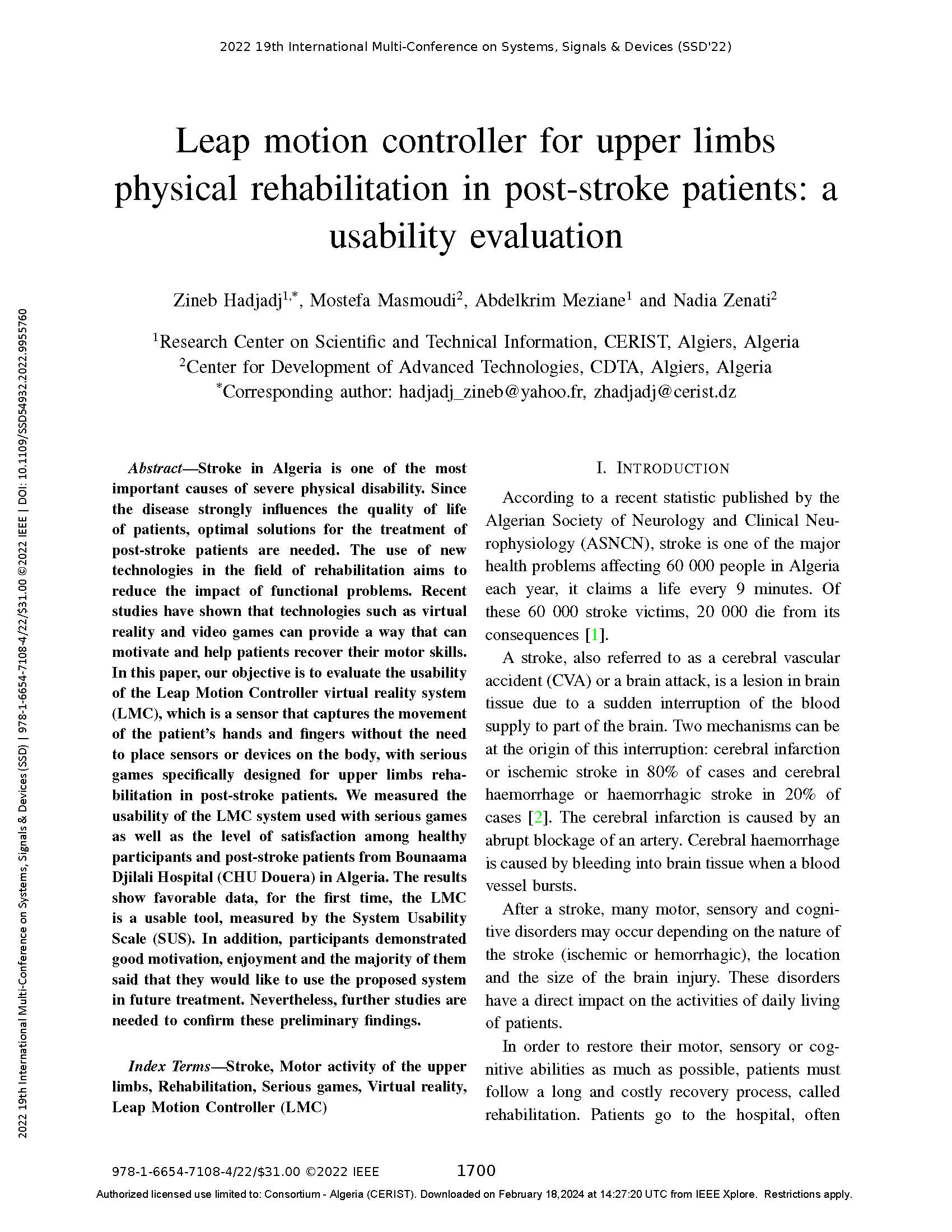Leap motion controller for upper limbs physical rehabilitation in post-stroke patients
a usability evaluation
Article Ecrit par: Zenati, Nadia ; Meziane, Abdelkrim ; Masmoudi, Mostefa ; Hadjadj, Zineb ;
Résumé: Stroke in Algeria is one of the most important causes of severe physical disability. Since the disease strongly influences the quality of life of patients, optimal solutions for the treatment of post-stroke patients are needed. The use of new technologies in the field of rehabilitation aims to reduce the impact of functional problems. Recent studies have shown that technologies such as virtual reality and video games can provide a way that can motivate and help patients recover their motor skills. In this paper, our objective is to evaluate the usability of the Leap Motion Controller virtual reality system (LMC), which is a sensor that captures the movement of the patient's hands and fingers without the need to place sensors or devices on the body, with serious games specifically designed for upper limbs rehabilitation in post-stroke patients. We measured the usability of the LMC system used with serious games as well as the level of satisfaction among healthy participants and post-stroke patients from Bounaama Djilali Hospital (CHU Douera) in Algeria. The results show favorable data, for the first time, the LMC is a usable tool, measured by the System Usability Scale (SUS). In addition, participants demonstrated good motivation, enjoyment and the majority of them said that they would like to use the proposed system in future treatment. Nevertheless, further studies are needed to confirm these preliminary findings.
Langue:
Anglais
Thème
Informatique
Mots clés:
Virtual reality (VR)
Rehabilitation
Serious Games
Motor activity of the upper limbs
Leap Motion Controller (LMC)

